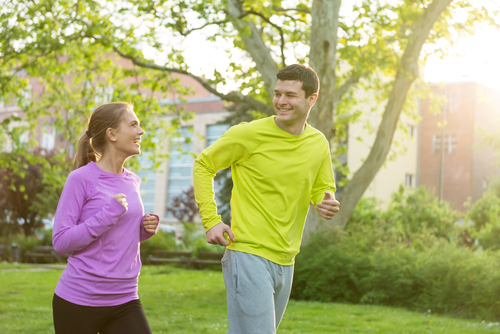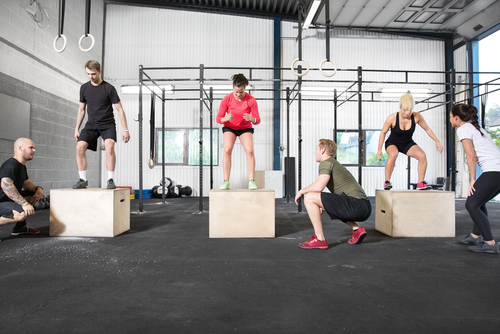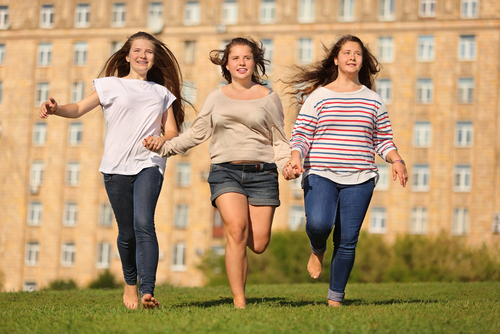Do Your Kids Have Lazy Genes?
By Dan Peterson, TeamSnap’s Sports Science Expert.
On the road to sports success, young athletes need two ingredients, innate skills and the willingness and determination to get better. We all know boys and girls who showed early promise that got them noticed but then didn’t have the drive to practice every day to develop that talent. Often labeled lazy or unmotivated, the assumption was that they chose their own path by not working hard. However, new research shows evidence that genetics may play a role not only in the natural abilities of a developing superstar but also in their practice persistence and physiological response to training.
In his bestselling book The Sports Gene, David Epstein introduced us to the notion that your inherited genes may affect how your body reacts to training, both psychologically and physiologically. He references an ongoing project at the University of Miami, known as Genetics of Exercise and Research (GEAR), whose stated purpose is: “to identify genetic biomarkers and environmental risk factors that are associated with variation in exercise response among participants who undergo a 12 week exercise protocol.”
Last year, one of the first GEAR studies put a group of women, ages 18-65, through a 12-week aerobic and strength conditioning program. None of the women had exercised regularly in the previous 6 months. Based on their performance increases from start to finish, they were divided into 4 subgroups, with the best performing quartile being labeled “high responders” and those showing the lowest fitness gains were “low responders.”
In a genetic analysis of the two groups, 39 different gene variations were found, including how oxygen is converted to energy fuel, how fat molecules are broken down and the ability to create new blood vessels. In other words, the high responders had genes that were more amenable to changes from exercise than the low responders.
“Scientists are pinpointing some of the genetic influences on an individual’s ability to adapt to a training regimen,” said Epstein in a recent interview. “And that now looks to be a key component of ‘talent,’ not simply some skill that manifests prior to training, but the very biological setup that makes one athlete better at adapting to a particular training plan. In recent years, both with respect to endurance and strength training, the science has increasingly shown that genes mediate the ability to “respond” to training, and it appears that work will continue to be bolstered. People often say ‘I’m not very talented in this or that area,’ but the genetic work is increasingly showing that we can’t necessarily know if we have talent before we try training.”
So, our body’s reaction to exercise may be related to our genes but what about our attitude towards a workout? Is there a “lazy” gene variation? Researchers at the University of Missouri have been working with rats to find the answer. They gave a group of rats equal access to a running wheel, then observed which ones were the avid runners and which ones were “cage potatoes.” Then they bred the high mileage rats with each other and the less active rats with their peers. After ten generations of selective breeding, active vs inactive, they had a set of super-runners that ran 10 times more than their sedentary counterparts.
When they examined the two different groups, they found significant genetic differences in a part of the brain that repeats behavior that is found to be enjoyable. In the tenth generation running rats, they were so in love with the idea of running that they were obsessed with it, while the inactive rats showed very little gene expression in that brain area.
The study will be published in the Journal of Physiology.
Of course, rats aren’t people and we each have our own set of reasons why we may or may not love to exercise. Previous research that had shown that active kids typically have active parents concluded that this was an environmental learned response. What the research is starting to show is that, as with rats, there just might be a genetic influence in humans that helps determine the preferred activity levels of adults and kids.
By understanding how each young athlete responds to training, parents and coaches can learn how to motivate each of them to their full potential.
NEW! Free Sports Organization Resources
All of TeamSnap's ebooks, articles, and stories in one place. Access Now
Similar Articles:

Spouses Who Move Together Get Healthy Results
By Dan Peterson, TeamSnap's Sports Science Expert …
Read More

Rocking Out Can Get You Through High Intensity Workouts
By Dan Peterson, TeamSnap's Sports Science Expert For…
Read More

For Overweight Teens, Is Aerobic or Resistance Exercise Better?
By Dan Peterson, TeamSnap's Sports Science Expert For…
Read More
